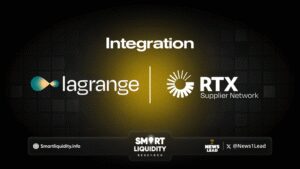The Impact of Blockchain on Digital Identity Management


In an increasingly digitized world, where our personal data is scattered across countless online platforms, the need for robust, secure, and user-centric digital identity management systems has never been more critical. Traditional digital identity frameworks are often centralized, relying on trusted third parties like governments, banks, and corporations to store and manage personal data.
However, these centralized systems are vulnerable to data breaches, identity theft, and privacy infringements. Enter blockchain—a decentralized, transparent, and tamper-proof technology poised to revolutionize digital identity management.
The Problem with Centralized Digital Identity
Today, most digital identity systems operate on a centralized model where users have limited control over their personal data. Each time an individual registers on a new platform or service, they must provide personal information, which is then stored in that organization’s centralized database. This fragmented approach leads to several challenges:
- Security Risks: Centralized databases are prime targets for hackers. A single breach can expose millions of users’ sensitive information.
- Lack of User Control: Users have minimal say in how their data is used, shared, or stored.
- Redundant Data Storage: Users repeatedly provide the same information to multiple platforms, increasing the risk of data misuse.
Blockchain offers a compelling solution to these issues by decentralizing identity management and giving users greater control over their personal data.
How Blockchain Transforms Digital Identity Management
Blockchain technology introduces the concept of self-sovereign identity (SSI), where individuals have full ownership and control over their digital identities. Unlike centralized systems, blockchain-based digital identity solutions enable users to store their identity credentials in a secure, decentralized manner and share them selectively with service providers. Here’s how blockchain achieves this:
1. Decentralization and Security
Blockchain’s decentralized nature ensures that personal data is not stored in a single, centralized database vulnerable to hacking. Instead, identity credentials are encrypted and stored across a distributed ledger. Users can control access to their data using cryptographic keys, significantly reducing the risk of data breaches.
2. Immutability and Transparency
The immutability of blockchain ensures that once data is recorded, it cannot be altered or deleted. This feature enhances the integrity of digital identities, making it easier to verify the authenticity of identity credentials. Transparency in blockchain networks also ensures that data usage can be audited, increasing trust in digital identity systems.
3. Selective Disclosure
With blockchain-based identity solutions, users can share only the necessary information required by a service provider. For example, instead of sharing a full birth certificate to prove age, a user can share a cryptographic proof that they are above a certain age. This minimizes data exposure and enhances privacy.
4. Interoperability
Blockchain enables the creation of interoperable digital identities that can be used across multiple platforms and jurisdictions. Standards such as Decentralized Identifiers (DIDs) and Verifiable Credentials (VCs) are being developed to ensure compatibility across various blockchain-based identity systems.
Real-World Applications of Blockchain in Digital Identity
Several sectors are already exploring and implementing blockchain-based digital identity solutions:
- Financial Services: Banks and financial institutions can streamline KYC (Know Your Customer) processes using blockchain-based digital identities, reducing compliance costs and improving user experience.
- Healthcare: Patients can maintain control over their medical records and share them securely with healthcare providers, enhancing privacy and interoperability.
- Travel and Immigration: Blockchain can facilitate secure and seamless identity verification at border crossings, reducing wait times and enhancing security.
- Voting Systems: Blockchain-based digital identities can enable secure and transparent online voting, reducing electoral fraud and increasing voter participation.
Challenges and Considerations
While blockchain holds great promise for digital identity management, several challenges remain:
- Scalability: Blockchain networks must be able to handle large volumes of identity transactions efficiently.
- Regulation and Compliance: The adoption of blockchain-based identity systems requires clear regulatory frameworks to ensure compliance with data protection laws.
- User Adoption: For blockchain-based digital identity solutions to succeed, users need to understand and trust the technology.
- Standardization: The development of universal standards for blockchain-based digital identities is crucial for interoperability.
Conclusion
Blockchain technology has the potential to transform digital identity management by offering a more secure, user-centric, and efficient alternative to traditional centralized systems. With the rise of self-sovereign identity and the adoption of decentralized identifiers, individuals can regain control over their personal data, enhancing privacy and security in the digital age. However, realizing this vision requires collaboration among technology providers, regulators, and users to overcome existing challenges and build a trusted digital identity ecosystem.
As we move toward a more connected world, blockchain-based digital identity solutions could become a cornerstone of the digital economy, enabling more secure interactions and fostering greater trust online.




